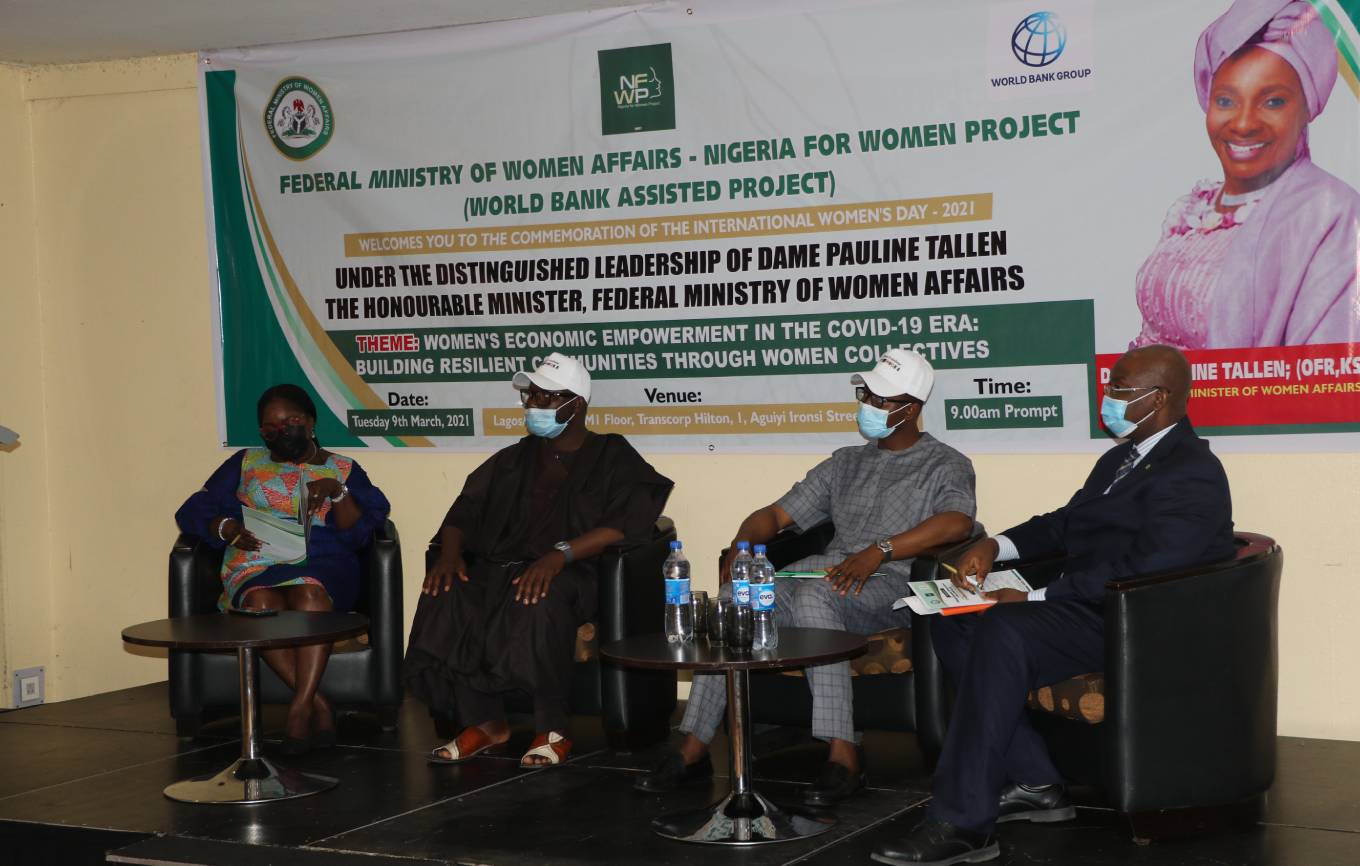The Federal Government has rolled out the nationwide expansion of the Nigeria for Women Program Scale-Up (NFWP-SU), extending its reach to all 36 states and the Federal Capital Territory. The initiative is set to empower over four million women across the country through enhanced financial inclusion, livelihood support, and social protection.
Speaking at the inauguration of the Federal Steering Committee for the NFWP-SU in Abuja, the Minister of Women Affairs, Hon. Imaan Sulaiman-Ibrahim, described the scale-up as a defining milestone in Nigeria’s strategy for women’s economic empowerment and social development.
“The NFWP-SU represents a resilient economic model aimed at building a national network of micro-entrepreneurs, savers, and borrowers the foundation of a stable and inclusive economy,” she stated.
Sulaiman Ibrahim noted that the expanded program incorporates lessons from the pilot phase (2018–2024) and aligns with the National Gender Equality and Women’s Empowerment Agenda as well as the Nigeria Women Economic Empowerment Policy (WEE).
Although the project commenced 18 months behind schedule, it is already active in 18 states and, according to the minister, received a “satisfactory” performance rating from the World Bank following its most recent review mission.
Tackling Gender Gaps
The minister lamented persistent gender disparities in economic participation, citing that 70% of Nigerian women live in extreme poverty, with only 10% having access to land ownership. She added that women earn 45–50% less than men in similar roles and that digital access remains skewed, with only 34% of women connected compared to 88% of men.
She emphasized that the scale-up will replace fragmented interventions with a cohesive, data-driven model capable of revitalizing local economies, reducing household vulnerability, and positioning women as catalysts for inclusive growth.
“When we empower a woman, we empower a household. When we empower millions of women, we transform an entire economy,” she said.
Strengthening Livelihoods and Resilience
According to Sulaiman-Ibrahim, the project aligns with the World Bank Group’s Global Crisis Response Framework, particularly in combating food insecurity through agricultural productivity and climate-resilient livelihoods.
She underscored the importance of synergy among partner ministries including Agriculture, Health, Water Resources, Finance, Environment, and Communications & Digital Economy to ensure smooth implementation and lasting impact.
Partners Commend Initiative
In his goodwill message, the Minister of Budget and Economic Planning, Senator Abubakar Atiku Bagudu, described the launch as “a pivotal step toward institutionalizing women’s empowerment and inclusive economic growth.”
He explained that the committee’s adopted Terms of Reference and Work Plan would enhance coordination, transparency, and measurable outcomes.
Representing the World Bank Country Director, Mr. Michael Ilesanmi commended Nigeria’s leadership in advancing women’s empowerment, describing the program as “Africa’s largest women’s economic empowerment initiative.”
“The world is looking to Nigeria as a model for getting women’s economic empowerment right,” he said, noting that the expansion is expected to reach up to five million women and their households, providing better access to finance and markets.
Representatives from the Ministries of Health, Humanitarian Affairs and Poverty Reduction, Industry, Trade and Investment, and Communications and Digital Economy also pledged their commitment to supporting the program’s success.
Building a Stronger Future for Nigerian Women
In her closing remarks, Dr. Maryam Adebola, Permanent Secretary of the Ministry of Women Affairs, expressed gratitude to development partners, especially the World Bank, for their continued collaboration. She reaffirmed the Ministry’s dedication to creating “a sustainable framework that uplifts women, families, and communities toward national prosperity.”
With Nigerian women contributing up to 80% of agricultural labour yet facing systemic exclusion from land ownership and financial services, stakeholders agreed that the NFWP-SU represents a crucial step toward bridging gender inequality and driving inclusive growth under President Bola Ahmed Tinubu’s Renewed Hope Agenda.




